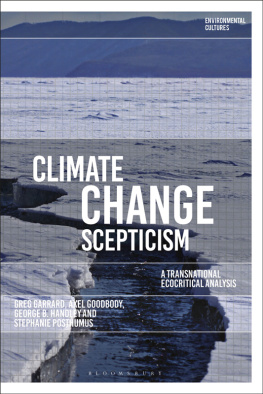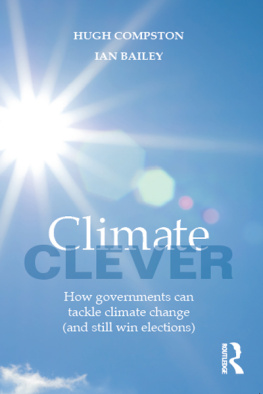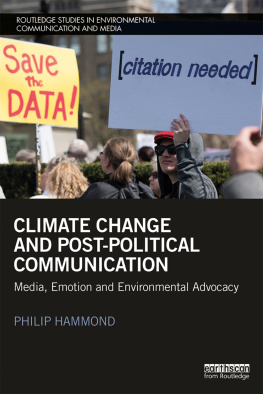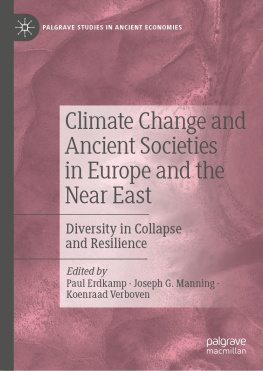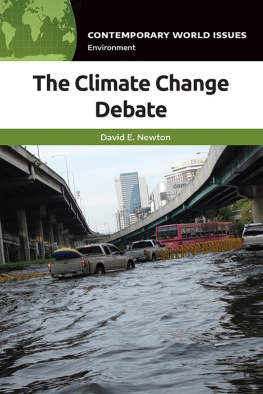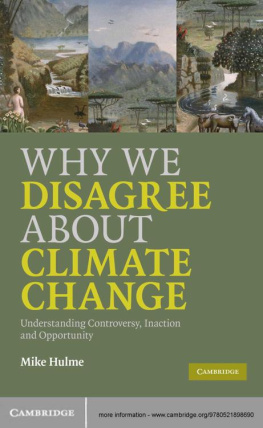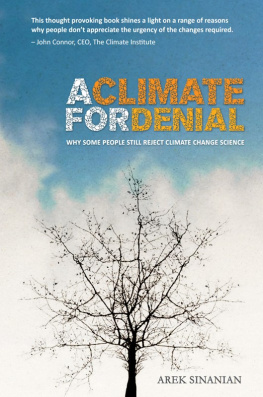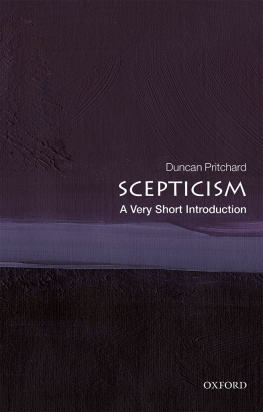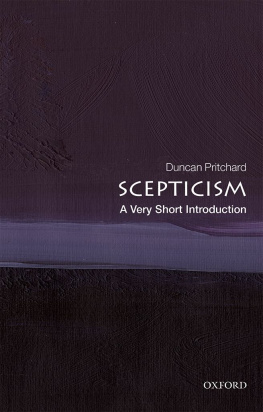Climate Change Scepticism
Environmental Cultures Series
Series Editors:
Greg Garrard, University of British Columbia, Canada
Richard Kerridge, Bath Spa University
Editorial Board:
Frances Bellarsi, Universit Libre de Bruxelles, Belgium
Mandy Bloomfield, Plymouth University, UK
Lily Chen, Shanghai Normal University, China
Christa Grewe-Volpp, University of Mannheim, Germany
Stephanie LeMenager, University of Oregon, USA
Timothy Morton, Rice University, USA
Pablo Mukherjee, University of Warwick, UK
Bloomsburys Environmental Cultures series makes available to students and scholars at all levels the latest cutting-edge research on the diverse ways in which culture has responded to the age of environmental crisis. Publishing ambitious and innovative literary ecocriticism that crosses disciplines, national boundaries, and media, books in the series explore and test the challenges of ecocriticism to conventional forms of cultural study.
Titles available:
Bodies of Water, Astrida Neimanis
Cities and Wetlands, Rod Giblett
Civil Rights and the Environment in African-American Literature, 18951941, John Claborn
Climate Change Scepticism, Greg Garrard, Axel Goodbody, George B. Handley and Stephanie Posthumus
Climate Crisis and the 21st-Century British Novel, Astrid Bracke
Colonialism, Culture, Whales, Graham Huggan
Ecocriticism and Italy, Serenella Iovino
Fuel, Heidi C. M. Scott
Literature as Cultural Ecology, Hubert Zapf
Nerd Ecology, Anthony Lioi
The New Nature Writing, Jos Smith
The New Poetics of Climate Change, Matthew Griffiths
This Contentious Storm, Jennifer Mae Hamilton
Forthcoming Titles:
Anthropocene Romanticism, Kate Rigby
Cognitive Ecopoetics, Sharon Lattig
Eco-Digital Art, Lisa FitzGerald
Teaching Environmental Writing, Isabel Galleymore
Climate Change Scepticism
A Transnational Ecocritical Analysis
Greg Garrard, Axel Goodbody, George Handley
and Stephanie Posthumus

The authors wish to thank the peer reviewers for their forthright and constructive comments, and also Richard Kerridge, who provided thoughtful, attentive editorial feedback that greatly improved the manuscript.
Greg Garrard acknowledges the research support provided by the University of British Columbia Humanities and Social Sciences fund, which allowed him to pursue research in the UK. He is especially grateful to colleagues in the Faculty of Creative and Critical Studies and the Deans office who helped him take time out of his role as Associate Dean of Research to complete this project. Some text from the sections authored by Greg has appeared in his Michael Crichton: State of Fear, an entry in Cli-Fi: A Reader, eds. Axel Goodbody and Adeline Johns-Putra (Peter Lang 2018). Quotations from The Heretic Richard Bean, 2011 by kind permission of Oberon Books Ltd. This project was originally inspired by reflection on the life of Dennis Burningham, Gregs stepfather. Born in rural Alberta, he had a career in the military and then the oil industry. He became a radical environmentalist, converted to Islam, and worked in the fossil fuel sector until he died. The deepest fault lines are within. His son, Ben Burningham, is a decidedly interested, interesting disinterested physicist who has taught Greg much. Above all, Greg wants to thank his wife Verity for her love, understanding and practical support throughout. As lead author, he dedicates this book to her.
Axel Goodbody is grateful to the Rachel Carson Center in Munich for the award of a three-month Visiting Research Fellowship, during which much of the work on was completed.
George Handley is grateful to the Environmental Humanities Research Group at Brigham Young University and to Mark Weiner who all provided valuable feedback on drafts.
Stephanie Posthumus would like to acknowledge the additional research time awarded to her to work on this book project during her sabbatical year as well as the constant support of her family, Stfan, Naomie and lodie Sinclair.
When we started writing this book in the year 2016, it seemed the worst possible time to write about climate scepticism. From a scientific perspective, the argument was basically over: the Summary for Policymakers of the Fifth Assessment Report (AR5) of the Intergovernmental Panel on Climate Change (IPCC) had stated:
Anthropogenic greenhouse gas emissions have increased since the pre-industrial era, driven largely by economic and population growth, and are now higher than ever. This has led to atmospheric concentrations of carbon dioxide, methane and nitrous oxide that are unprecedented in at least the last 800,000 years. Their effects, together with those of other anthropogenic drivers, have been detected throughout the climate system and are extremely likely [95100% probability] to have been the dominant cause of the observed warming since the mid-20th century.
(Synthesis Report Summary for Policymakers)
Moreover, an unprecedented array of international scientific organizations had offered the IPCC their support. Dozens of national and international academies of science, including the British Royal Society and the American Academy for the Advancement of Science, published statements confirming that the IPCC process is sound, and its conclusions commensurately robust. The only organizations maintaining non-committal positions represented scientists who mainly work in fossil fuel industries: the American Association of Petroleum Geologists and the American Institute of Professional Geologists (Scientific Opinion on Climate Change). While acknowledged areas of scientific uncertainty remain, the IPCC position is, as they say, settled science.
In terms of global politics, too, the game seemed to be up. The much-hyped 2009 Copenhagen climate conference (COP 15 in United Nations parlance) turned out not to be, as one cringe-worthy marketing phrase had it, Hopenhagen; it turned into an unseemly squabble between China and the United States instead. However, the UN process got decisively back on track in Paris six years later, when COP 21 resulted in a global agreement to reduce greenhouse gas emissions so as to prevent more than 2C rise in global mean surface temperature over pre-industrial averages. Once bilateral agreement was reached between the United States and China, it appeared that the international political consensus at last matched the scientific one.
Warm words and global agreements such as the Kyoto Protocol have had minimal impact in the past, but now there seems to be real change in the air. After a decade when the annual rate of increase of global CO2 emissions was around 4 per cent, the rate of increase fell to 1 per cent in 2012 and 2013, and then just 0.5 per cent globally in 2014 (Olivier). The growth of renewable energy worldwide is astonishing, as David Boyd reports in The Optimistic Environmentalist:
In 2000, the [International Energy Agency] predicted that global wind power would reach a total of 30 gigawatts by 2010. Oops! Their forecast was exceeded in 2003, seven years early, and more than 30 gigawatts of wind power has been installed every year since 2009.
(27)
While conservatives and climate sceptics object to wind farms blighting the uplands of the British Isles, the global energy revolution is getting under way. The Chinese spent more on installing renewable energy than fossil-fuelled power stations in 2013, and in 2014 their total demand for coal declined for the first time. Of course, a couple of good years do not a trend make. Nevertheless, when we embarked on writing this book in 2016, there were sound scientific, technical, cultural and economic reasons for thinking that the long, difficult transition from fossil fuels had begun.
Next page
